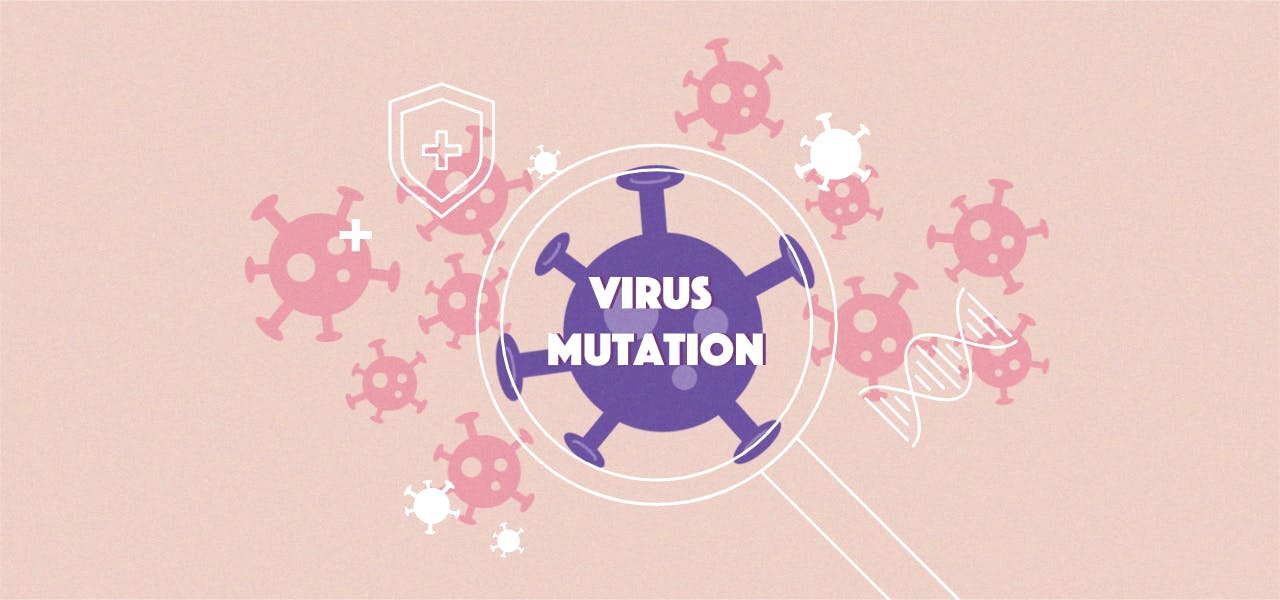The effects of the pandemic of COVID-19 have impacted everyone around the world, and the virus itself was an enigma to even the most seasoned virologists. Scientists worked around the clock to learn how the virus attacks the system, the complications from it, and how to treat and prevent it.
Now that we finally have a vaccine with potential, there’s a new complication: the virus, as viruses often do, has begun to mutate. Although this is a common issue as viruses spread, it adds another major stress on top of an already overwhelmed world full of shell-shocked people trying to adjust to the new normal. As fears begin to spiral out of control once again, virologists are in the spotlight trying to answer questions about what it means for a virus to mutate and the potential consequences of the COVID-19 mutation.
The Job of a Virologist
A lesser known branch of research is virology, the field of science in which microbiologists specialize in analyzing microorganisms. Virologists, in particular, focus on the microorganisms that are able to replicate quickly and attack across a wide area, causing diseases to spread uncontrolled until the virologist is able to step in and counter their attack.
Virologists in the past few decades have managed to locate, analyze, comprehend, and mitigate the effects of viruses like AIDS, SARS, and the H1N1 flu. They pass their knowledge on to other researchers who are able to complete clinical research studies to determine successful treatment methods and create vaccines against the viruses when applicable.
Virologist lab assistants only require a bachelor’s degree, but if you want a career as a researcher of virology, you’ll need a master’s degree at a minimum and a doctorate for coveted positions.
What a Viral Mutation Entails
A mutation in an organism is done at the genetic level. It’s a change in the sequence of the living organism’s genetic code, and this is done more rapidly in viruses than in human cells, because the virus is less complex and because human cells can defend against mutations, which are seen as an error in the genome.
A gene’s mutation can have no effects at all or can significantly alter the protein and what it does. But once the mutation is successful at changing the function, the entire organism is changed. In the case of viruses, it usually involves the evolution of the microorganism in a way that allows it to thrive in an environment that has adapted to it. Occasionally, the opposite occurs and it becomes difficult for it to survive, eventually dying out through natural selection. In the case of COVID-19, it appears that the mutated sequence is spreading with an advantage rather than a disadvantage.
This variant was expected, though, and virologists have been working diligently to predict how the mutations would evolve in order to develop treatments ahead of time, and just in time, it seems. Both England and South Africa have reported cases of a new version of the COVID-19 virus with mutations in up to 90 percent of analyzed samples, and cases are also popping up in the United States.
The Possible Consequences for This Virus
A mutation sounds scary to those of us who are already dealing with the fear and ramifications of this virus, but the COVID-19 strain, known scientifically as SARS-CoV-2, is actually mutating slower than expected. Most RNA viruses mutate rapidly, but the SARS-CoV-2 has a proofreading function that causes it to genetically evolve about four times more slowly than viruses like influenza.
The virus is also not drifting antigenically yet, meaning it’s not adapting to our immune system’s attack by creating a different “look” on the surface and therefore hiding from our white cells. As long as this continues to be the case, the current vaccines should still work for mutated strains, unlike the flu virus, which regularly drifts antigenically, requiring new vaccines every year for these new strains.
Because this is a novel coronavirus, though, virologists are not putting their guard down. There are many ways the virus can shift, adapt, and spread, and as long as there are potential diseases out there, the job of a virologist will always be crucial to humanity.
